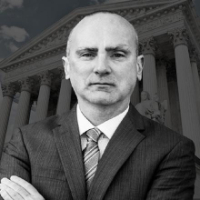Dallas Felony Lawyer, Texas
Sponsored Law Firm
-
 x
x

Click For More Info:
-
Bailey & Galyen | Attorneys at Law
1901 Airport Fwy Bedford, TX 76021» view mapCriminal Law Solving Your Legal Puzzle
The mission of our firm is to provide effective, aggressive, and compassionate legal services to those in need of legal assistance across all consumer legal practice areas.
800-667-3791
Robert Keating
✓ VERIFIEDAttorney Rob Keating has successfully represented individuals charged with crimes ranging from serious felony offenses to minor municipal citations in... (more)
Christopher Lankford
✓ VERIFIEDChristopher Lankford is licensed to practice law in all Texas state courts, Federal court (Northern District of Texas), and the Supreme Court of the U... (more)
Craig Allen Dameron
With over 15 years of experience representing clients charged with DWI and other criminal charges in Tarrant County and throughout the Dallas-Fort Wor... (more)
Darlina Crowder
Attorney Darlina C. Crowder provides criminal defense representation for clients in the Plano, Texas area. She has been practicing law in the U.S. Dis... (more)
FREE CONSULTATION
CONTACTFREE CONSULTATION
CONTACT Phillip Galyen Bedford, TX
Phillip Galyen Bedford, TX AboutBailey & Galyen | Attorneys at Law
AboutBailey & Galyen | Attorneys at Law Practice AreasExpertise
Practice AreasExpertise





